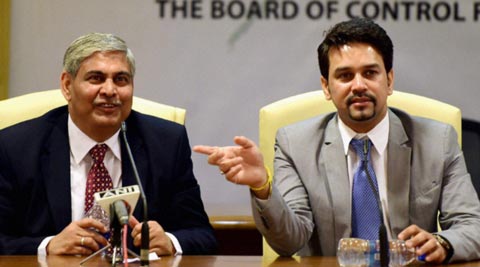
As first impressions go, Shashank Manohar couldn’t have made a better one at the commencement of his second stint at the helm of the Board of Control for Cricket in India (BCCI). For once, here was a BCCI president talking real reform. Mercifully, he didn’t dish out banal recommendations, like banning IPL cheerleaders and after-match parties. He talked about opening up the BCCI to an external body to conduct investigations. The new BCCI president wasn’t vague, he seemed to have a plan. He spoke about appointing an independent auditor and hinted at roping in an ombudsman to sort out the plethora of conflict of interest issues plaguing the board. This was a first — the club was admitting the idea of outside scrutiny. Manohar has shown the right intent, but can he and his colleagues implement the lofty reforms that are being promised?
For the BCCI’s overhaul, the walls need to fall and a new, sturdier foundation laid. For now, Manohar’s apparent zealousness to kick in changes may have a reason. The Justice Lodha Commission, the Supreme Court-appointed panel that is expected to suggest constitutional and structural changes to the BCCI, is breathing down his neck. In the months to come, the commission will make its recommendations public. By swiftly putting his best foot forward, Manohar can make things less embarrassing for both the BCCI and the judiciary. He can spare the most influential cricket board an arduous court-dictated rewrite of its rulebook even as the SC is saved from coming across as an over-reaching authority meddling in the affairs of an independent entity.